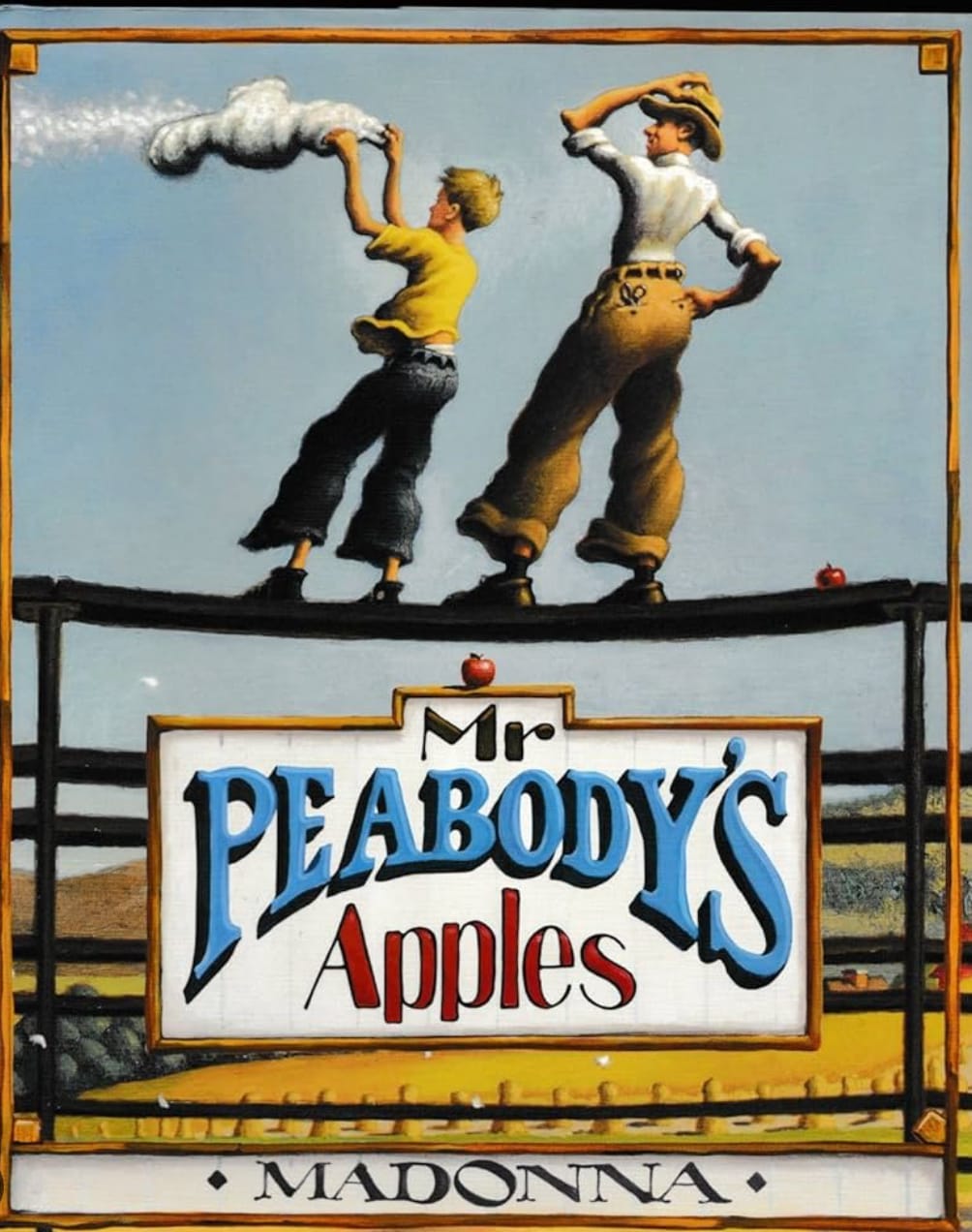Remember the game children play, or used to, at birthday parties or in elementary school, Telephone? If if you are not familiar with the game, the game starts with the children either sitting in a circle or in a line and one person or the adult whispers a short scenario, or story into the first child’s ear. That child then whispers the story to the child sitting next to them, and then the story goes around the circle or the line. When the last child hears the scenario or story, they repeated it to the group. It is interesting to see how the last time the information was repeated compares and contrasts to the initial story. Usually, the story that is ultimately told, is no where near what the initial story was. This illustration is a good example of how rumors or gossip can be spread and facts change.

Although I am no longer a fan of Madonna, she wrote a children’s book that came out 20 something years ago. Called Mr. Peabody’s Apples. The story is based on a 300 year old story told by Rabbi Baal Shem Tov about the effects and the consequences of gossip. The story takes place in the 1940s in a small town and the main character is a beloved elementary school teacher and baseball coach, Mr. Peabody. Everyday he walks home from school through the small down town. One day, a parent sees him take an apple from a sidewalk display in front of the local grocery store, without paying. The parent believes that Mr. Peabody has stolen the apple. The parent tells others what he observed and eventually, the small town believes that Mr. Peabody is a thief. When he is confronted and tells that he has an agreement with the grocery store owner that he pays upfront, I believe at the beginning of the week or month, so that he can get an apple on his way home so that he is quickly on his way, people realize they didn’t have all of the information before they jumped to conclusions. Not only did they hard Mr. Peabody’s reputation, think of the others who may not have heard the resolution/explaination of the story. A good analogy of gossip and it’s affects is the image of cutting open a down pillow and shaking all the feather out of it. Which would be the words of gossip being spread. Now try to collect all of those feather that have blown all over. It’s hard to contain all of those feathers once they have been shaken and blown about. The same is true of the gossip. You may not be able to contact all the people who were ill informed. The priest at the Orthodox Church I grew up in, Father Raphael Biernacki had a sermon based on this story as well, that to this day, I still remember.

Children may not know who the British Royal Family is or the Princess of Windsor, and her story in the news over the last couple of weeks but we as adults do. The royal family made an announcement that the Princess of Wales had surgery in January, and that she would not be back to work until after Easter. That was enough, however, when the over edited Mother’s Day picture was released and people took notice rumors started to swirl. Granted if the photo hadn’t been released, people may have just left the situation alone (really, they couldn’t issue a throwback photo or no photo). However, that prompted much discussion, mostly unknown about the situation, to get out of hand. We understand this is adults, but children need to learn the consequences for everyone involved when it comes to gossip.
Explain to your children what gossip means and what rumors are. Explain to them how hurtful it can be to the person being talked about and how bad they might feel if they were the one spreading information that was untrue. Sometimes it’s best to subscribe to the saying from Thumper in the Walt Disney movie, “Bambi” when he quotes his mom, “If you can’t say something nice, don’t say nothing at all”. Another good topic for discussion around your table… Wishing you a Great Day🍎







